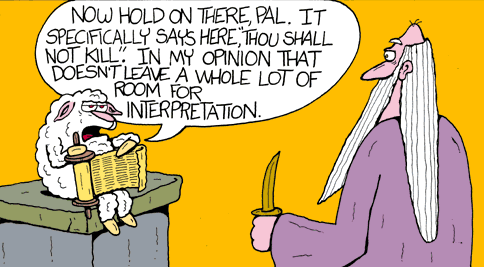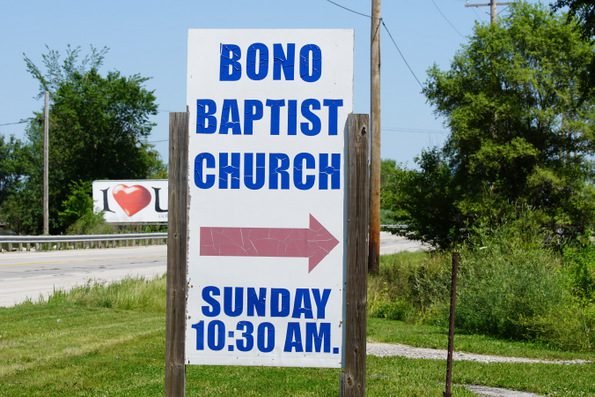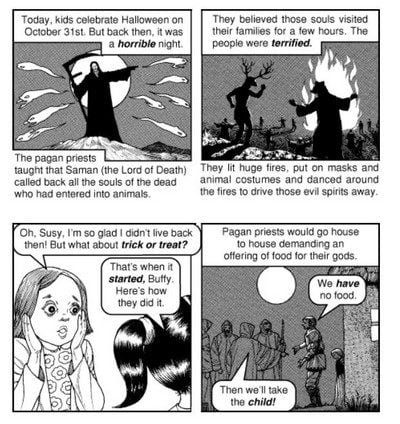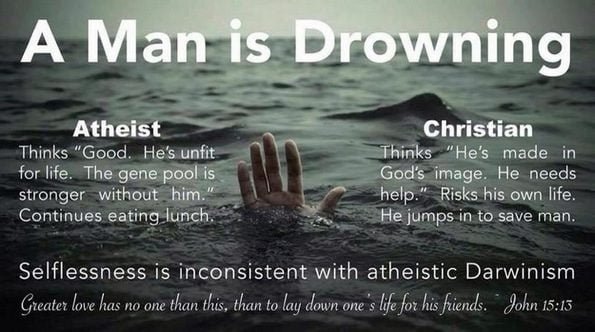
Published on January 13, 2002. At the time, I was pastor of Our Father’s House in West Unity, Ohio. This is a good example of how I used to think about life, God, the Bible, sin, and culture. This was not a Letter to the Editor. I wrote it for the Community Voice editorial column on the editorial page of The Bryan Times.
The anniversary of the famed Supreme Court decision Roe vs Wade has just passed. Almost 30 years ago the Supreme Court ruled that abortion on demand was legal in the United States. Since that time, a battle between the forces called pro-life and pro-choice has raged without abatement in our country. We truly are a nation divided when it comes to abortion. Both sides have taken to the legal and political arena in an attempt to stifle or crush their opposition. In the case of the pro-life movement, some on the far extreme of the movement have taken to murdering clinic workers and the doctors who perform the abortions. Several men with such beliefs are on the FBI’s Most Wanted List.
How are we, as Christians, to respond to the continued murder of babies in abortion clinics, private doctors’ offices, and hospitals? Some may suggest that I am asserting that the word Christian and pro-life are synonymous. Such observation is correct. Christianity and pro-choice are not compatible one with the other. I have written a number of times over the years on this issue, and each time I receive letters from supposed pro-choice Christians. Perhaps such folks are well-intentioned, but it is theologically impossible to square being a Christian with also being pro-choice. To be a Christian is to walk in the steps of, and follow after, the Lord Jesus Christ. Jesus was pro-life and the Law of God states very clearly “Thou shalt not kill.”
The command “Thou shalt not kill” has a positive precept attached to it. That precept is “thou shalt preserve life.” If we are not to kill, then we are to preserve life instead. This preserving of life extends to not only the abortion clinic, but also the prison and countries where we are engaged in war. The Bible teaches and permits capital punishment, but it also prescribes when and who it is to be carried out. The Bible permits just war, but it also prescribes when and how such war is to be carried out. We must always remember that the killing of other human beings shows the baseness of human society, not its superiority. As Christians, we have a duty to preserve life at every opportunity. We must stand against abortion. We must work to outlaw the practice in the United States and the rest of the world. We should also be actively working to promote justice for those in prison and to insist that God’s law be followed in the execution of those guilty of first-degree murder. We must hold our government and military accountable for its actions in Afghanistan. Find the terrorists. Punish the evildoer, but in doing so do no harm to innocent men, women, and children.
We must continue to wage the war of words with the pro-choice crowd. They speak of the “woman’s right to choose” and yet they are rarely challenged to the assertions they make in regard to this statement. I too, support a “woman’s right to choose.” She makes a choice to have sexual relations with a man, and she must live with the consequences of such an action. The pro-choice movement is at the forefront of the “right to have sex whenever with whomever movement” and then with the quickness of a magician they deny any accountability for the choice that is made. There are many choices a pregnant woman can make, but far too often abortion is the only option given because it is the easy way out. Adoption is an option. Extended family assistance in raising the child is an option. Our government needs to streamline the adoption process making it easy for families to adopt these unwanted babies
We must do more than just object to abortion. We must also put our words into action. We must help support women in their pregnancy and provide the means for their care. Every unwanted baby needs a home. My wife and I are the parents of six children, yet if needed, we would take on the responsibility of another child. It would not be easy, but our words must be backed up with action.
We must continue to oppose the fringes of the pro-life movement that advocates violence and murder in the name of God. Murdering a baby via abortion is a sin but so is murdering an abortion clinic doctor. We must not bear the sword. God gives government the responsibility of bearing the sword to punish evildoers. As we stand against abortion we must work to change the laws of the land. Abortion must once again be illegal. We must work to enact laws that make it criminal to participate in any part of the abortion process. We need to stop the tax flow to organizations that promote abortion. Let Planned Parenthood get its money from its liberal constituents, but not from the American taxpayer. There is much work to do and killing an abortion doctor will not stop the abortion mills. There will always be another to take their place. Instead, we must make abortion illegal thus removing the financial incentives that continue to fuel the abortion mills.
It is easy to become complacent in the matter of abortion. As I watched the events of September 11th my heart was grieved. I mourned and wept for days over the tragic loss of life. Yet, keeping it all in perspective, the loss of life at Ground Zero equals one day of work in the abortion clinics of America. Our hands are covered with the blood of millions of babies that have been aborted since that fateful day when Roe vs. Wade became law. We must not rest until justice for all once again prevails in our Land. May God give us the grace and strength necessary to not waver in this battle of battles.
Bruce Gerencser, 66, lives in rural Northwest Ohio with his wife of 45 years. He and his wife have six grown children and thirteen grandchildren. Bruce pastored Evangelical churches for twenty-five years in Ohio, Texas, and Michigan. Bruce left the ministry in 2005, and in 2008 he left Christianity. Bruce is now a humanist and an atheist.
Connect with me on social media:
Your comments are welcome and appreciated. All first-time comments are moderated. Please read the commenting rules before commenting.
You can email Bruce via the Contact Form.











